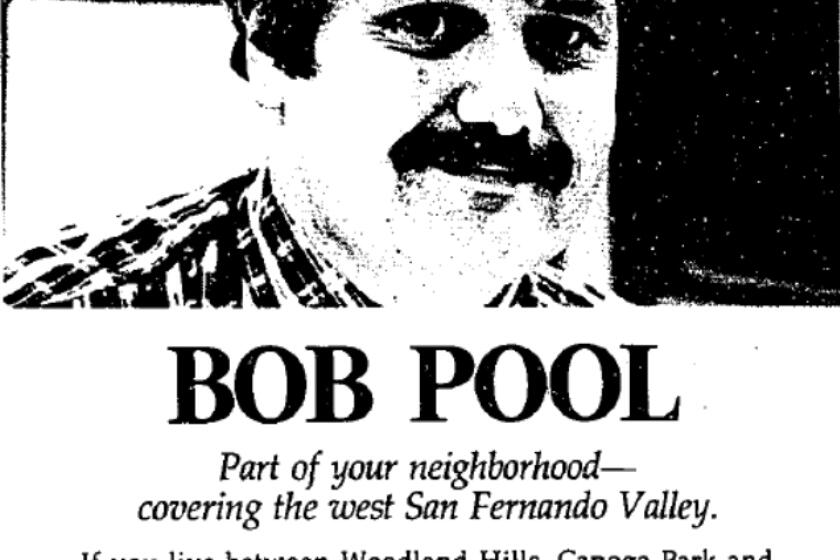Racketeering Law Could Put LAPD in Bad Company
Already with the one-liners.
Already, in the few days since a federal judge ruled that the misdeeds of the Rampart division mean the entire LAPD can be sued under the nation’s racketeering laws, the humor machine has creaked into gear. Imagine a judge lumping the LAPD with the law’s original target, the Mafia:
Instead of “Dragnet,” “The Godfather.”
Instead of “Just the facts, ma’am,” “Make him an offer he can’t refuse.”
The LAPD, Mirandizing itself: “I have the right to remain silent. . . . “
Could it happen? Could the LAPD be fragged by the courts? Hit by friendly fire from a federal law that was supposedly gunning for other game?
Already, the Los Angeles city attorney’s office is trying to appeal the judge’s ruling. Its petition states dryly: “There is substantial room for difference of opinion as to each of the questions of law addressed by the court.”
Where are the economic damages that would justify applying RICO, the Racketeer Influenced and Corrupt Organizations law? What kind of interstate commerce went on, as RICO requires--Rampart’s bad-boy poster boy Rafael Perez taking his drug-dealing girlfriend to Vegas to party with another LAPD cop who had just robbed a bank?
And just where does the LAPD meet the definition of a criminal enterprise that uses illegal means to further its ends?
Ahem, says the opposition--isn’t that exactly what that cozy little Rampart operation was all about?
*
Being touched by the long, chill finger of RICO is not just another bit of legal minutia. Like a bankruptcy or a child-molesting conviction, a RICO designation sticks. It means paying three times the amount that a jury might award; in the case of the city of L.A., this new math could mean a $300-million Rampart tab instead of the $100-million estimate.
While Mayor Richard Riordan battles state Sen. Tom Hayden to keep the Rampart statute of limitations from being doubled to two years, RICO saunters in and extends it to 10 years.
And RICO is not only about criminal wrongdoing but civil offenses. RICO looks for “a pattern of racketeering activity” that can be as few as two violations in a decade.
Of all the woes and body blows the LAPD has taken lately--from the Justice Department threatening to take over the department, to the mayor of Philadelphia probably never setting foot in this town again after his aide was stopped for jaywalking--this may be the most severe.
It is certainly the most galling.
A RICO ruling puts the LAPD in the company of the Mexican Mafia and the 18th Street gang. The LAPD joins the Teamsters Union and General Motors and Philip Morris. And the LAPD shares a pew with other RICO targets, like Philippine President Ferdinand Marcos, Operation Rescue and the white racist group the Order.
Misery may love company, but not that company.
*
In a moment of L.A. synchronicity, the man I called about this turns out to be a man who worked at the Justice Department when RICO was being drafted, and was a friend of the man who drafted it.
Gerald Caiden is a professor of public administration at USC who has written about both organized crime and public corruption, but who never expected the two to intersect like this.
“I don’t think [RICO drafters] ever believed it would be applied to police . . . but the definition really does apply to any group organizing a criminal activity. And clearly in this case the police publicly have been found guilty of such a thing and admitted as much.”
Caiden was at first startled by the judge’s decision of “an organized conspiracy within the public sector against the public,” and then he thought, “Why should we be so surprised? When we think of agencies like the CIA, haven’t they lied to us about the Contra affair? . . . This is nothing new. It is possible for such conspiracies to continue undetected to great public harm.”
RICO has been applied to organizations like unions that were not formed to break the law but ended up doing so--not unlike the LAPD, Caiden suggests. Nonetheless, in practical terms, Caiden doesn’t expect that the courts “are going to be permitted to open this can of worms.”
“Much of the wrongdoing is exaggerated. You can’t condemn the whole of the LAPD--8,000 people: Come on, they’re not all corrupt. One percent is 1% percent too many, but it’s still only 1%.”
Critics of RICO have already complained that it cuts too broad and too deep. At best, this brush with RICO will help the LAPD to put its erring feet on the straighter path. At worst, all that will change, after all this, is the RICO law itself.
*
Patt Morrison’s column appears Fridays. Her e-mail address is patt.morrison@latimes.com
More to Read
Start your day right
Sign up for Essential California for news, features and recommendations from the L.A. Times and beyond in your inbox six days a week.
You may occasionally receive promotional content from the Los Angeles Times.







